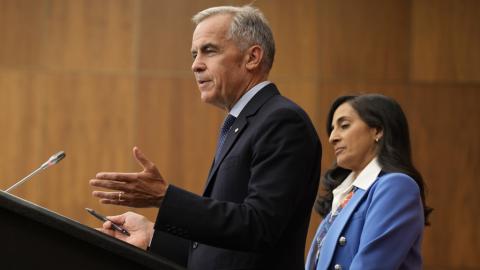Canada has recently declared its intention to formally recognize a Palestinian state, signaling a significant shift in its diplomatic stance on the protracted Middle East conflict. This commitment aligns Canada with a growing number of nations advocating for a two-state solution as the viable path to resolve the complex Israeli-Palestinian dispute, aiming for an independent, viable, and sovereign Palestinian state coexisting peacefully alongside Israel.
Canadian Prime Minister Mark Carney announced this pivotal decision following a recent cabinet meeting, projecting the formal recognition to occur at the 80th session of the United Nations General Assembly in September 2025. This move underscores Canada’s long-standing dedication to fostering peace and security in one of the world’s most volatile regions through diplomatic means.
Carney further elaborated on the preconditions for such recognition, emphasizing the necessity of fundamental governance reforms within the Palestinian Authority. These reforms include commitments from Palestinian Authority’s President Mahmoud Abbas to hold general elections in 2026, explicitly excluding the involvement of Hamas, and ensuring the demilitarization of the prospective Palestinian state. These conditions highlight the delicate balance Canada seeks between supporting Palestinian aspirations and addressing Israeli security concerns.
The announcement from Canada Politics drew immediate and forceful criticism from former U.S. President Donald Trump, who swiftly responded via social media. Trump expressed his dismay, asserting that Canada’s decision would significantly complicate future trade relations between the two North American allies, reflecting the deep geopolitical divisions surrounding the issue.
Canada’s stance follows a similar declaration by the United Kingdom’s Prime Minister Keir Starmer regarding the recognition of a Palestinian state, indicating a broader trend among Western nations. However, this diplomatic momentum is met with skepticism by some analysts, including Simon Barrett, who contends that the Palestinian Authority’s ultimate objectives do not align with peaceful coexistence with Israel.
Barrett specifically argued that the true intentions of factions like Fatah, the dominant group within the PLO and the Palestinian Authority, mirror those of Hamas, a group whose foundational charter explicitly calls for the destruction of the State of Israel and global Jewish communities. This perspective suggests that diplomatic recognition without deeper ideological shifts could be counterproductive to lasting peace.
Critics like Barrett pose a critical question: what message does such recognition send to groups like Hamas? They argue that rewarding calls for statehood without stringent preconditions, such as the release of hostages or cessation of violence, could inadvertently legitimize and encourage continued acts of terrorism against Israel. This ongoing debate underscores the profound complexities and inherent risks associated with advancing the two-state solution in the current geopolitical landscape.






Leave a Reply